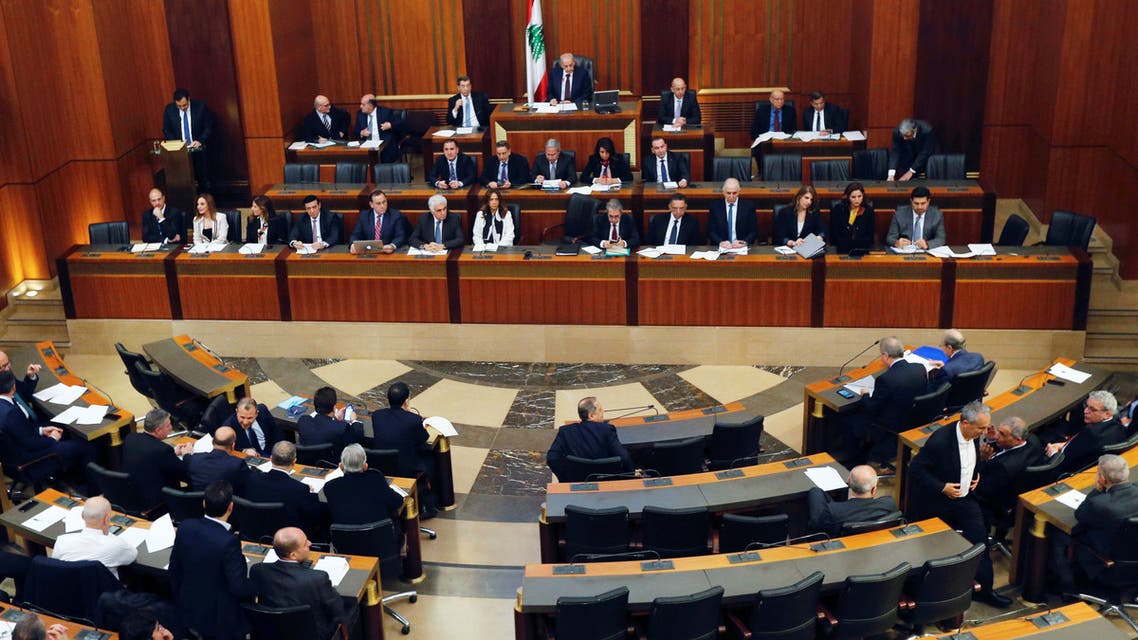By Hanin Ghaddar — english.alarabiya.net — Put simply, Lebanon is an Iranian colony. As protest slogans indicate, the Lebanese people are finally aware of this reality. The presence and ineffective statements of the former pro-West March 14 political parties means the international community needs clarity about who really controls the country. Only then can policy be drawn accordingly. For the latest headlines, follow our Google News channel online or via the app. The March 14 leaders always justify their inactions by using the fear factor – that if they resign, Hezbollah will take over the state institutions, and they want to make sure they can protect what small margin of independence they have left in Lebanon. Another argument is that they want to prevent the chaos that will happen if state institutions fall completely.
This logic is outdated. Chaos has arrived, and the state – as in the decision of war, government formation, or economy – is in the hands of the Iranian regime and its proxy. The Beirut Port blast and the assassination of Lokman Slim are two examples of how inadequate the state institutions’ roles have become. Without clarity, the international community will continue to try to find an economic solution, to handle Lebanon as a humanitarian crisis. This is dangerous because it hides the real problem, which is political, not financial. If former March 14 leaders get their parliamentary blocs and ministers to resign, the political core of the crisis will be exposed. This could lead to a new and more urgent policy for Lebanon – one that addresses Iran’s hegemony and how to counter it, instead of focusing on humanitarian assistance. A meeting between Lebanese President Michel Aoun and PM-designate Saad Hariri last week ended poorly. Failing to reach a much anticipated breakthrough for the formation of a government the theatrical exchange of accusations was a clear indicator that any new government in Lebanon is some way off.
The collapse of any semblance of governance will soon translate into starvation. Iran wants to use Lebanon as a bargaining chip in its negotiations with the US. Any independent government focused on reforms is not in Tehran’s interests. Hariri, backed by the French Initiative, hit a brick wall: his persistence to continue trying to form a cabinet is proving futile. The March 14 political coalition are watching from the sidelines helpless as Hezbollah dictates the presidency, the parliament, and Hassan Diab’s caretaker government. There is nothing that they can do to stop the collapse from within the system. They can only sit idly and watch people starve and fight over food in the grocery stores. It’s high time for these political leaders to resign, eradicate the political cover they provide to Iran’s proxies, and isolate the group and its allies.
In his most recent speech, Hezbollah’s leader Hassan Nasrallah made clear that the real balance of power in Lebanon is in Iran’s hands. His speech was basically a set of instructions and threats: to the Lebanese Army to prevent protesters blocking roads; to Hariri to form a government that fits its interests, and to the Central Bank governor to stop the collapse of the Lebanese pound. Nasrallah threatened the protest groups, hinting at measures available from outside the constitutional framework to employ, if their demands are not met. It has the military arms which have been used before. He also clearly rejected any form of technocratic or expert government advisors which is a condition to any international financial bailout. Europeans might be more encouraged to activate corruption and terrorism sanctions once the real intentions of Hezbollah are made clear.
Domestically, a resignation of one third of parliament could be used to push for an early election, something that could lead to a shift in the parliament’s composition, a new government, and a new president. Resigning is the only ethical statement these leaders can make, and staying in is a sign of self-preservation and self-interest. By resigning they will help to expose Hezbollah as the cancer at the heart of Lebanon.




